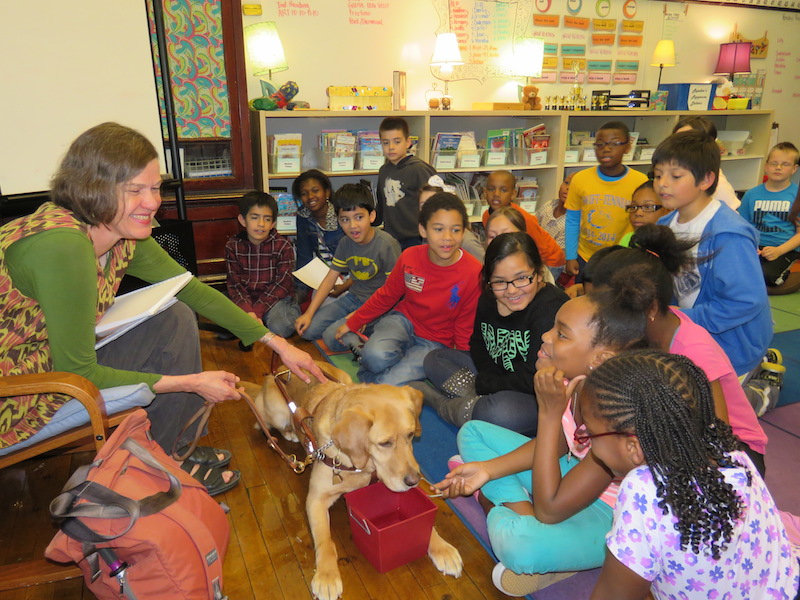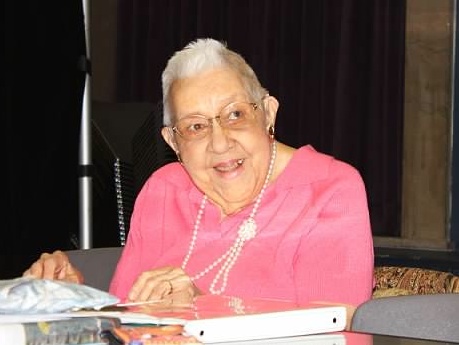How on earth did this post about the Lincoln Memorial turn into one about dinner parties with Flo?
May 30, 2015 • 16 Comments • Posted in Flo, travel, UncategorizedWhen my talking computer read today’s Writer’s Almanac out loud to me this morning, I discovered that the Lincoln Memorial was dedicated on this day in 1922. My mother, Flo, was born before the Lincoln Memorial? Whoa. I thought the Lincoln Memorial had been around since, well, since the Emancipation Proclamation or something. The Writer’s Almanac says that the monument was first proposed in 1867, but construction didn’t begin until 1914. Lincoln is known as the Great Emancipator, but the almanac reports that the audience at the 1922 dedication — more than 50,000 people — was segregated. From the almanac:
Keynote speaker Robert Moton, president of the Tuskegee Institute and an African-American, was not permitted to sit on the speakers’ platform. just over 40 years later, on the 100th anniversary of the Emancipation Proclamation, Martin Luther King Jr. would give his “I have a dream” speech from the steps of the Lincoln Memorial, in front of an audience of 200,000.
It’s nearly a year since Flo died, but I still find myself forgetting and picking up the phone to call her to tell her something. More often, to ask her a question. She was born in 1916, which makes her six years old when the Lincoln Memorial was dedicated. On today’s phone call –or during a visit — I’d tell her all I’d learned from the Writer’s Almanac about the Lincoln Memorial, and then start in with my questions:
- Do you remember them dedicating the Lincoln memorial?
- When you were in school, did they teach you about the memorials in Washington, D.C.?
- I guess there really weren’t a whole lot of memorials on the mall back then, did they talk much about them at all in school?
- If the Lincoln Memorial wasn’t built yet, what was on the back of the five dollar bill when you were born?
I’ll never know the answers. For one, Flo would have just laughed at that last question, and if you wanna know the truth, I probably wouldn’t know the answers to the other questions even if she was still here to pick up the phone. Flo was never one to talk about her own experiences much. I’d ask a question, she’d shrug (and yes, you can hear a shrug over the telephone) and say no, she really doesn’t remember much about that historical event. From there, she’d veer off on a related story, nearly always about someone other than herself. Today’s call might have evolved into a recollection of a trip Mike and I took with her once to see Pick and Hank in Washington, D.C. “ohhhh, their place is so beautiful,” she’d exclaim. “That kitchen — it was like Hollywood!” She’d wax poetic over the magnificent dinner Hank put together for us and the piano tunes Pick played afterward. “That was really something.” Calls with Flo were like that. She appreciated her childhood and her upbringing, but rather than dwell on details of the past, she focused on other people, what was going on now, in the present. Are pick and Hank still in that place? Are they coming out for a visit? Have you seen them lately? How are they doing? She’d want us to say hello to them, of course, and she always phoned when a holiday card came in the mail from them, or from anyone else I knew, for that matter. Cards in the mail were truly red-letter days for Flo. Hearing her gush about those cards? I may not have realized it then, but now I know. Those were red-letter days for me. And that’s what I Miss about our visits and the random phone calls with Flo. They were simple reminders to enjoy the people around us, appreciate the time we have with them, and let them know they’re loved. Most important: share great meals with friends when you can, and never miss an opportunity to gather around a piano to belt out an old tune. 


